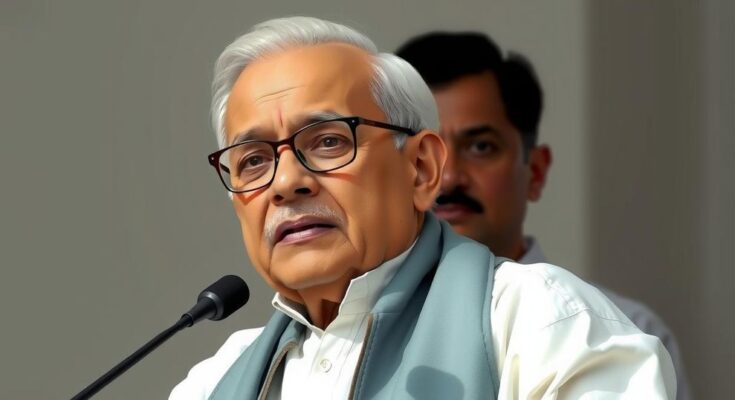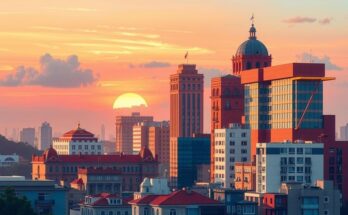Manmohan Singh’s economic policies, rooted in his academic background, played a pivotal role in transforming India’s economy. His focus on export-led growth, initiated in his doctoral thesis, culminated in significant reforms during his tenure as Prime Minister. These reforms effectively rescued India from fiscal crises and reduced poverty rates substantially through a combination of liberalisation and social safety nets.
Former Prime Minister Manmohan Singh’s policies were strongly influenced by his academic background, notably his D. Phil from Oxford University. His early research focused on India’s export performance, aiming to discern the stagnation of export earnings from 1951 to 1960 and proposing necessary policy shifts. In 1991, Singh implemented significant economic reforms, including devaluing the rupee to enhance export competitiveness and reducing import tariffs. These actions not only recovered India from a financial crisis but also positioned the nation as a rising economic force.
Singh’s commitment to liberalisation was coupled with the establishment of social safety nets, successfully lifting 271 million individuals out of poverty between 2005 and 2014. Experts attribute his success to insights gained under the mentorship of eminent economists, including his D. Phil supervisor, Prof. Ian Malcolm David Little, who influenced early Indian planning efforts toward a more export-oriented economic model.
Manmohan Singh, who served as Prime Minister of India from 2004 to 2014, is credited with transforming India’s economy through liberalisation and reforms that integrated the country into the global economic landscape. From his educational background at Oxford University, Singh developed a keen understanding of economic policy, particularly in relation to exports and trade. His experiences with renowned economists shaped his approach to India’s economic challenges, leading to the implementation of policies that resulted in significant poverty alleviation and economic growth during his tenure.
In summary, Manmohan Singh’s economic policies were profoundly shaped by his academic pursuits, allowing him to address India’s export stagnation and implement vital reforms in 1991. His approach not only rescued India from economic crisis but fostered considerable economic growth and poverty reduction. The combination of liberalisation with social welfare initiatives has left a lasting legacy on India’s economic landscape.
Original Source: www.hindustantimes.com




